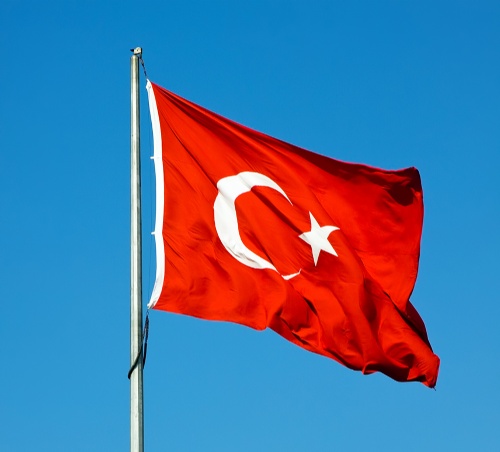Now in its twelfth year, Class 46 is dedicated to European trade mark law and practice. This weblog is written by a team of enthusiasts who want to spread the word and share their thoughts with others.
Click here subscribe for free.
Who we all are...
Countdown to revocation requests at the TPTO
 In one year’s time, trade mark revocation proceedings will be possible before the Turkish Patent and Trademark Office (TPTO). Güldeniz Doğan Alkan and Cansu Evren discuss the changes.
In one year’s time, trade mark revocation proceedings will be possible before the Turkish Patent and Trademark Office (TPTO). Güldeniz Doğan Alkan and Cansu Evren discuss the changes.
Article 26 of the IP Code
After years of proceeding with a Decree Law, the Intellectual Property Code no. 6769 entered into force in Turkey on 10 January 2017. Article 26 of the IP Code regulates the revocation of a trade mark registration. It foresees that the trade mark shall be revoked in the following conditions:
- Absence of genuine use (as per Article 9/1 of the IP Code).
- The trade mark having become generic or a misleading indication.
- Use of the trade mark contrary to the technical specifications for the guarantee mark or collective mark (as per Article 32 of the IP Code).
Contrary to the (abolished) Decree Law and the established implementation, Article 26 of the IP Code determines that the revocation of a trade mark will be requested from the TPTO.
However, the legislator (with the provisional clause 4 of the IP Code) postponed the entry into force of this concerned article for seven years, i.e., until 10 January 2024. A provisional article stated that until 10 January 2024, revocation requests are filed directly before the civil IP courts.
Preparations for entry into force
Now that one year remains until the article’s entry into force, the Office has started to make serious preparations. The article’s entry into force has been long-awaited since it is a new practice that has not been introduced in Turkey before.
It is also eagerly awaited since it is in parallel with the execution before the EU. Indeed, the provisional clause 4 of the IP Code corresponds to Article 38 of EU Directive No 2015/2436. Therefore, during the preparation of this new practice until 10 January 2024, the Office will have many examples to learn from.
Considering that opposition proceedings take around four to eight months to be completed, revocation requests are also expected to be finalised in a similar timeframe, which is time- and cost-effective compared to a court action. Therefore, it is worth watiing for Article 26’s entry into force rather than filing a court action now since the court actions take two to four years to be finalised.
Controversial questions
However, several controversial issues have arisen. Due to the wording of Article 26, it is understood that as of 10 January 2024, revocation requests can only be filed before the Office and cannot be directly filed before the courts. Although this is the common practice in most countries, the admission of this authority solely to the Office brings various issues in Turkey:
- Although the revocation proceedings before the Office are expected to be time effective, as the decisions of the Office can be challenged before the Ankara IP courts and the dispute will most likely be brought before the court anyway, the finalisation of a revocation proceeding may become longer.
- Another issue is the evaluation of the use evidence. It is well known that invoices are the most valued evidence of proof of use. However, in the current practice as a great number of invoice/sales figures are filed and in order to confirm the accuracy of invoices/sales figures filed, the commercial books are reviewed by the court-appointed experts by visiting the defendant’s premises. It is not yet known whether the Office will be able to conduct discovery in the premises of the trademark owner, if needed. Indeed, trademark owners cannot be expected to file their commercial books to the Office.
- Following this, whether the examiners of the Office are competent to review financial data is another question. Indeed, the courts appoint experts from the relevant sectors related to the parties and the evidence filed. There may be technical/specific necessities depending on the goods/services concerned and examiners will need to be able to make necessary evaluations.
The Office, having enough time to cover these issues, has already started preparations for early 2024. Assuming that the issues will be solved by 10 January 2024, we believe that the handling of revocation requests by the Office will be practical and time- and cost-effective compared to the length and costliness of a court action.
Güldeniz Doğan Alkan and Cansu Evren are members of Gün & Partners in Turkey. Güldeniz is a member of the MARQUES Designs Team
Posted by: Blog Administrator @ 11.47Tags: TPTO, revocation, ,


 Sharing on Social Media? Use the link below...
Sharing on Social Media? Use the link below...Perm-A-Link: https://www.marques.org/blogs/class46?XID=BHA5153

